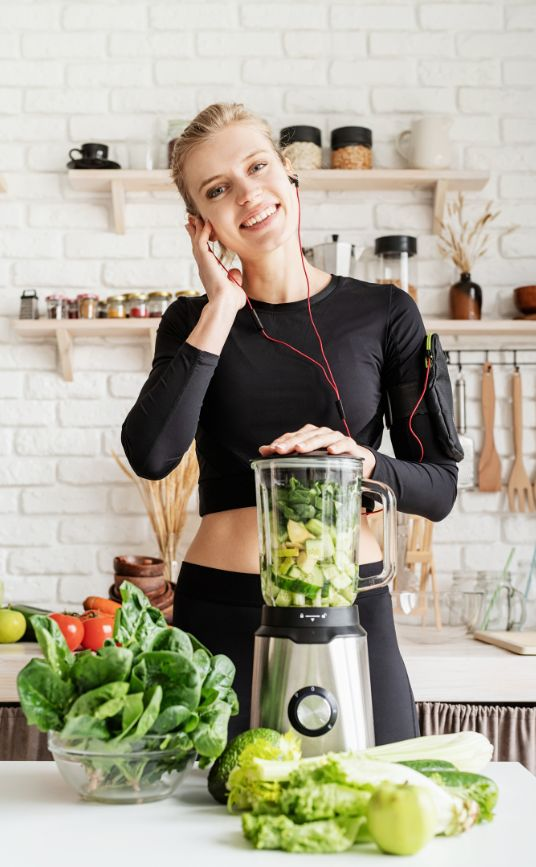Local food is a huge trend, and you can be a part of it. Not only are you getting better quality foods, but you’re supporting local businesses, too. In fact, there are a lot of benefits that come from eating local foods.
Learn why eating local is so important, and then pick up tips and tricks for incorporating more local foods into your diet. If you want to get serious about sticking to your journey of supporting local food scenes, follow Live Conscious on Facebook @weliveconscious and Instagram @weliveconscious.
Benefits of Eating Local
Did you know that eating local foods is better for you, better for local businesses, and is better for the environment?
Financial benefits. Opting to buy and eat local foods means that your money stays in the community. You’re supporting farmers who live in your area, and by doing that, you’re helping them bring more money into your region.
Fresh food. Did you know that when you buy something that’s shipped to your grocery store, it’s picked way before it’s ripe, so it doesn’t spoil during transport? Food that is shipped may have been in storage for days or even weeks.
In contrast, local foods are picked right before they’re brought to market, meaning they get to naturally ripen and absorb all the benefits of the soil and sun. This means your food is fresher, tastes better, and is better for you.

Reduced carbon footprint. Eating local foods means that your food doesn’t have to travel long distances, which helps to cut back on the pollution involved in transport.
Avoid artificial ripening. This is quickly becoming a hot button topic and for a good reason. Because many fruits and vegetables are picked prematurely for transport, they need to be artificially ripened.
This is an area of controversy. Even though some methods are considered safe, many people want to avoid those chemicals anyway. Also, some methods are not safe, yet you may be exposed to them if you don’t buy local.
Good for your environment. Supporting local, organic farmers means fewer pesticides, herbicides, fungicides, and fertilizers are in your local ecosystem. That’s a win/win for everyone.
Now that you see how important it is to buy local foods and support your local growing community, let’s look at the many ways you can do it.

How to Support Your Local Food Community
Not all of your foods need to come from local providers. Using the following tips can make a big difference.
1. Shop the Farmer’s Market
One of the easiest ways to support the local food scene is to shop for local foods at a farmer’s market. Most communities have a farmer’s market, and many of them have several.
Buying fresh seasonal foods is a great way to learn more about what grows in your area, and it’s a wonderful introduction to your local providers.
2. Ask Questions and Be Open to Learning
These people are experts and not only know more about when foods taste their best, but they may also have some amazing recipes to share with you. Start small, and once you learn more about your food scene, you can begin overhauling your cupboards and the way you cook.
3. Go to a Farm
Why not head right to the source? Some of your local farms have open harvests where they encourage people to come pick their own produce or buy what they’ve already picked. This is great for people who’ve never had the opportunity to have a garden. It’s also a wonderful place for kids to learn more about the world around them and the food that nourishes them.

A fun farm visit can have you picking tomatoes, apples, and berries, harvesting potatoes, and beans, and whatever else that farm specializes in. Transform this trip into a whole day adventure capped by an evening meal made of your haul.
4. Join a Local Harvest Food Co-op
If you don’t want to head out to the farmer’s market regularly, why not have that food shipped to you. Many communities have something called a local harvest food co-op. These groups are a lot like the food clubs you sign up for that deliver meals to your door or ingredients to your door. The only difference is these co-ops deliver fresh, local foods to you. What a fun way to try new foods that are grown locally.
5. Research Restaurants
If your community has a thriving farming scene, then there are probably more than a handful of restaurants that feature their foods. Check out the restaurants around you to see if they regularly have local foods on the menu or if they do any fun tasting menus featuring regional fare.
Be brave and try meals you normally wouldn’t, and get a real feel for the flavor of your area.
6. Have a Dinner Party
Why not share your love of local foods with your friends? Gather together your favorites from the farmer’s markets, local farms, and your co-op delivery. Take some tips from the experts at your favorite restaurants, and create a delectable dining experience for your friends and family.
If you’re received well, step it up next time by having a potluck, and encourage your friends to each make one dish that features local foods. By sharing your love of this movement and encouraging others, you’re spreading the benefits for all and bringing awareness to your social circle.

Waking Up To Wellness
Supporting your local food scene does more for you and your community than you might imagine. Once you see all of the benefits and realize that supporting a local farmer is supporting a healthy lifestyle, it becomes more important.
Initially, it can be a little tough to find ways to support local foods, but once you dive in and learn more about the harvests and seasonal recipes, you’ll never want to go back to eating the way you did before.
Make the most of your new love for local, start sharing your recipes and meals with others. The more support your local food producers get from you and others, the more they’ll be able to produce.









